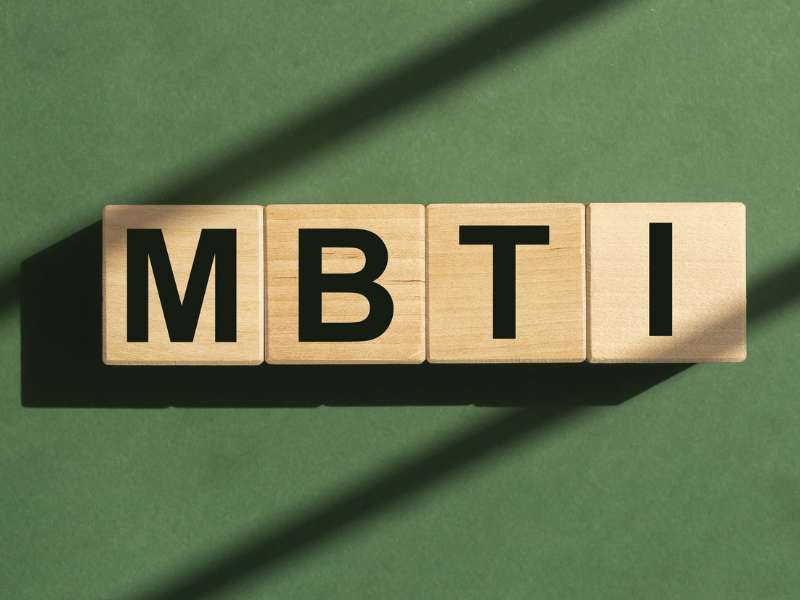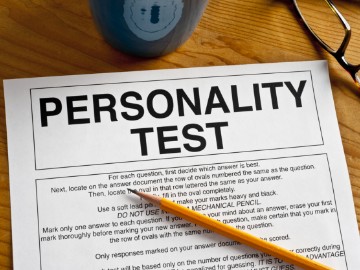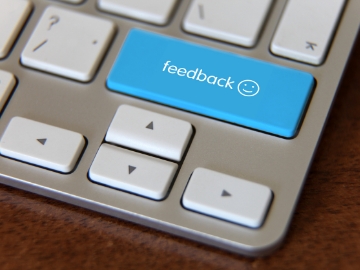16 MBTI Personality Types: What Do the Letters in Myers-Briggs Mean

The Myers-Briggs Personality Type Indicator (MBTI) questionnaire shows your personality type, strengths, and tastes. Employers use this to determine where applicants fall within the 16 personality types and give them the idea of what kind of person they need for the job.
This list briefly reviews the four dimensions of the MBTI personality types and the 16 personalities within them to understand the MBTI types better. Read it below.
Four Dimensions of Personality Types
First, you must define the different letters in the Myers-Briggs test to know the personalities they make.
-
Extraversion (E) vs. Introversion (I)
These describe how you react to and engage with the world around you. Extraverts feel comfortable working in groups. On the other hand, introverts tend to enjoy deep conversations and feel refreshed after some time alone.
-
Sensing (S) vs. Intuition (N)
If you lean toward sense, you tend to focus on the facts. On the other hand, if you value intuition, you tend to think about the future and contemplate theories. These tell how you receive information about your environment.
-
Thinking (T) vs. Feeling (F)
These determine how you make judgments using information. If you fall under the dimension of thinking, you place more value on facts and show consistency and reason. If you're more inclined to feel, you tend to use emotions when making decisions.
-
Judging (J) vs. Perceiving (P)
These are how you interact with the world. When you lean toward judging, you want orderliness and resolution. On the other hand, if you perceive more, you're more flexible and tend to figure things out as you go along.
16 MBTI Personality Types
-
INTJ-A/INTJ-T (The Architect)
INTJs are highly logical. Although they have a natural determination, it can easily develop into perfectionism, which could negatively impact their personal life.
-
INTP-A/INTP-T (The Thinker)
INTPs prefer being alone. They have a vibrant inner world and choose to pay attention to their inner thoughts over the outside world.
-
ENTJ-A/ENTJ-T (The Commander)
ENTJs enjoy social interaction with others. They're an effective leader because of their wisdom and problem-solving skills. They're also an excellent talker and are great at taking command.
-
ENTP-A/ENTP-T (The Innovator)
ENTPs are great at conversation. They're curious and committed to understanding their surroundings. They continually take in new knowledge and concepts and can grasp them quickly.
-
INFJ-A/INFJ-T (The Advocate)
INFJ is the rarest personality type. They're seen as diligent, friendly, sensitive leaders and excel at making others feel valued at work. They can be a good leader and frequently function as subtle influencers.
-
INFP-A/INFP-T (The Mediator)
INFPs are frequently incredibly artistic, spiritual, and creative. They often excel in jobs that allow them to use their creativity and vision. They enjoy working alone, even if they get along well with others.
-
ENFJ-A/ENFJ-T (The Protagonist)
ENFJs perform best in jobs that assist others. They're excellent communicators and planners, making them great leaders.
-
ENFP-A/ENFP-T (The Campaigner)
ENFPs are energetic and friendly by nature; however, they also require some alone time to meditate and ponder. ENFPs perform well in jobs that give a lot of freedom.
-
ISTJ-A/ISTJ-T (The Logistician)
ISTJs love order in all aspects of their lives. They tend to work better in situations with clearly-defined schedules, clear-cut responsibilities, and a strong focus on the topic.
-
ISFJ-A/ESFJ-T (The Defender)
ISFJ personalities are warm, responsible, and reserved. They're also dedicated, organized, and careful, making them appealing to numerous companies.
-
ESTJ-A/ESTJ-T (The Executive)
ESTJs are concerned with ensuring that everything goes according to plan. ESTJs are meticulous, on time, and hardly question the tasks. They follow instructions exactly and are very respectful of those in positions of power.
-
ESFJ-A/ESFJ-T (The Consul)
ESFJs inspire others to do their best. They perform well in real-world situations because they enjoy helping others. They find it hard to believe bad things about those they're close to.
-
ISTP-A/ISTP-T (The Virtuoso)
ISTPs enjoy action, novelty, and hands-on activities. They usually reject excessive rules and thrive in occupations that have useful and practical applications.
-
ISFP-A/ISFP-T (The Adventurer)
These letters in the Myers-Briggs test represent the easygoing, quiet, and peaceful. They're passionate about nature and animals. They succeed in jobs that deal with everyday issues because they tend to concentrate on the here and now.
-
ESTP-A/ESTP-T (The Entrepreneur)
ESTPS have a large social circle of friends and are outgoing. They enjoy fast-paced jobs that require teamwork because they like interacting with people. They focus on specifics and take a big-picture approach.
-
ESFP-A/ESFP-T (The Entertainer)
ESFPs are described as creative and resourceful. They succeed in occupations that offer a wide range of experiences and enjoy being the center of attention.
Discover Your Personality Type
There's no way to hack the test, but you shouldn't worry about getting an extrovert's job despite being an introvert. The MBTI personality types aren't the only basis for job compatibility. This test is a helpful tool for understanding how team members differ and how you can collaborate more effectively. If you need help with the best tips to land your dream job, head to Career.com.



